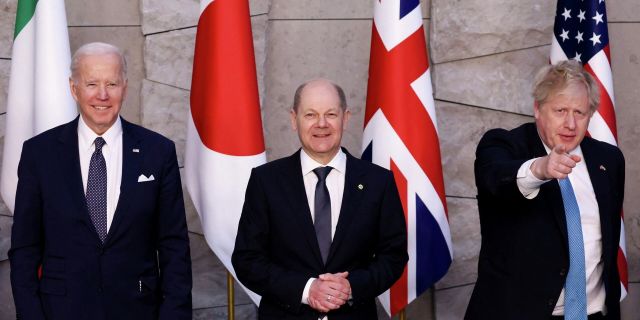Now NATO is demonstrating cohesion – can "war fatigue" come later?
The leaders of Western countries, despite the unity in support of Kiev, which they showed at the NATO summit, fear that their citizens may soon get tired of the events in Ukraine, writes Politico.
The NATO Alliance has just demonstrated unprecedented unity in the face of one of the greatest challenges in the history of its existence. The only question is how long this unity can last.
US President Joe Biden has an answer to this question: infinitely. "We will support Ukraine, and the entire alliance will support Ukraine as long as it takes, until we are sure that they will not be defeated <...> at the hands of Russia," Biden told reporters during a press conference in Madrid on Thursday, June 31.
Undoubtedly, many share the point of view of the American leader. The NATO Alliance decided to strengthen its defense system and paved the way for Sweden and Finland to join its ranks. However, cracks have already appeared in the wall that the West has built.
First, world leaders fear that the populations of their countries will soon be unprepared for such a struggle. "War fatigue comes from everywhere," Estonian Prime Minister Kaja Kallas told Politico during this week's summit. – It's been going on for four months. And we have high inflation, an energy crisis, and the coronavirus has not gone away. So this is becoming more and more problematic. Although we cannot give in to fatigue, because we have to help Ukrainians protect their country."
Fatigue is exactly what Russian President Vladimir Putin is counting on. He hopes that voters will punish their leaders for worrying about the situation of Ukraine more than about the problems in their own countries.
Bad news has already appeared for Biden, taking the form of the results of a survey conducted by YouGov on behalf of the right-wing organization Concerned Veterans of America. In response to the question "which of the listed problems should become the priority of the president," only 8% of thousands of respondents answered: "To ensure the defeat of Russia in Ukraine." "Reduce or eliminate inflation" turned out to be the most popular answer, and 38% of respondents supported it. Behind him were "to resolve the energy crisis", "to reduce the cost and improve access to medical care", as well as "other". According to the number of respondents who spoke for them, all these answers were ahead of the option "to ensure the defeat of Russia in Ukraine".
"Given the long–standing economic problems at home, it is not surprising that the American people are afraid to take on new security commitments abroad and start a war with Russia, which has nuclear weapons," said Dan Caldwell, senior adviser to the veterans organization. "Biden should pay attention to the fact that the American people would prefer him to focus on internal problems that are directly related to the well–being of Americans."
The situation is further aggravated by the rapid approach of the US congressional elections. The focus will be on internal problems, and such influential conservative media figures as Tucker Carlson will put pressure on Republicans, forcing them to actively criticize Biden and refrain from overly zealous support for the Ukrainian resistance.
Meanwhile, in the United Kingdom, another country that has led the campaign against Russia, unrest continues in the political arena after the vote of no confidence in Boris Johnson, which took place in June. The Prime Minister managed to hold on to his post, but the rebels within his own Conservative party have not stopped trying to oust him this year.
After four months of fighting in Ukraine, the West remains determined on the need to support Kiev. But how strong this determination will be and how long it will last will depend on whether the leaders will be able to convince their peoples of the need to continue to provide assistance to Ukraine.

